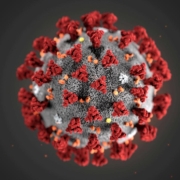Topline results from the Phase III TULIP study show an antibody-drug conjugate (ADC) from the Netherlands-based Byondis B.V. significantly prolonged progression-free survival (PFS) in patients with pretreated HER2-positive unresectable locally advanced or metastatic breast cancer (MBC).
Johnson & Johnson decided to terminate a $1.6 billion partnership with Argenx to develop the anti-CD70 antibody cusatuzumab to treat amyotrophic lateral sclerosis (AML) and myelodysplastic syndromes (MDS).
Now, a few years down the road,
Nanobiotix is developing a way for the company’s locally injected radioenhancer for solid tumors to treat metastasized cancers, in combination with checkpoint inhibitors, and also deliver results distally.
As the 2021 American Society of Clinical Oncology (ASCO) Annual Meeting presents many clinical trial updates, there appears to be a theme: access to drugs and pricing.
Bayer announced an agreement to acquire Noria Therapeutics Inc. and PSMA Therapeutics Inc. in an effort to expand the global biopharmaceutical company’s portfolio of targeted alpha radionuclide therapies for prostate cancer.
AstraZeneca Plc’s drug Lynparza reduced the risk of relapse and death in breast cancer patients with certain mutations in a late-stage trial, the British drugmaker said on June 3.
Men with a deadly form of advanced prostate cancer who failed other treatments survived four months longer after getting an experimental tumor-targeting radiation therapy from Swiss drugmaker Novartis, data released on June 3 showed.
Venture capitalist Chamath Palihapitiya is raising $800 million to finance four more special purpose acquisition companies (SPAC) that will be focused on taking biotech companies public.
Bristol Myers Squibb Co. was sued for $6.4 billion on June 3 for allegedly delaying the company’s Breyanzi cancer drug to avoid payments to shareholders of the former Celgene Corp., which the drugmaker bought in 2019.
Current guidelines for screening U.S. blood donors for symptoms of COVID-19 and for a history of recent infections are effectively protecting the blood supply from contamination with the new coronavirus, researchers say.










